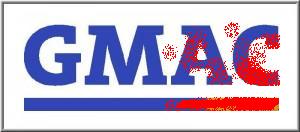GMAC reported this morning a record Quarter 4 loss of $3.9 billion from ongoing operations, compared with a profit of $7.5 billion a year earlier.
A net loss of $5.0 billion bought the total full-year net loss to $10.3 billion, compared to net income of $1.9 billion in 2008.
Results for the 2009 fourth quarter and full year were largely affected by losses related to GMAC’s reckless lending practices in its mortgage operations.
“Key steps during the year included: diversifying the profitable automotive finance business with the addition of Chrysler; launching the Ally Bank brand, which is a key part of our funding profile; strengthening our capital and liquidity positions; and implementing major restructuring actions to minimize risk related to the legacy mortgage business,” said GMAC Chief Executive Officer Michael A. Carpenter.
The U.S. Department of the Treasury last December provided an additional $3.8 billion in capital from taxpayers to GMAC to keep it solvent, in addition to almost $14 billion previously forwarded.
Treasury under its financial health check assessment, the so-called Supervisory Capital Assessment Program (SCAP), said that additional capital was needed for tottering GMAC, which was suffering from bad loans and collapsed residual values for leases of General Motors vehicles, as well as failed loans in the real estate markets.
As part of the additional funds, Treasury restructured its investment in GMAC “to protect taxpayers and put GMAC in a position to raise private capital and pay back taxpayers as soon as practicable.” As a result, U.S. taxpayers now own 56% of GMAC’s common equity, and $2.7 billion in 8% coupon trust preferred securities, and $11.4 billion in 9% coupon mandatory convertible preferred stock. Taxpayer ownership could increase to 70%, according to GMAC.
Taxpayers are clearly at risk here, given their already large 50% holding of General Motors Company, which lost $1.2 billion in its latest quarter.
The Obama Administration, facing unanimous Republican opposition, has thus far been unable to implement any reforms whatsoever in financial regulation 16 months after the collapse of the Lehman Brothers and AIG, among others, in the fall of 2008.
The recent U.S. Supreme court decision allowing banks and offshore companies to spend unlimited amounts of money supporting — or opposing — candidates in upcoming elections, virtually assures that there will be reforms, according to critics.
GMAC said in a statement that it “remains focused on its core strength of providing automotive financing to GM and Chrysler dealers and customers. As of Dec. 31, 2009, GMAC’s U.S. wholesale penetration for General Motors dealer stock was 91%, compared to 85% at year-end 2008. U.S. retail penetration for GM was 30%, up from 4.7% in the fourth quarter of 2008, when the company had restricted its retail lending as a result of challenges in the credit and capital markets.
GMAC also said it is expanding lending to Chrysler dealers and customers. At year end, GMAC had completed the underwriting process for 1,474 U.S. Chrysler dealers that applied for standard wholesale credit lines and approved 94%. GMAC’s U.S. wholesale penetration for Chrysler dealer stock increased to 77% on Dec. 31, 2009, up from 67% on Sept. 30, 2009.
During the fourth quarter of 2009, GMAC provided $894 million of new Chrysler retail loans, compared to $721 million in the prior quarter. GMAC’s U.S. retail penetration for Chrysler during the fourth quarter improved to 26%, compared to 13% in the third quarter.
In November 2009, GMAC announced that its head had departed and a new CEO, Michael A. Carpenter, was coming in from the financial services industry and taxpayer subsidized Citigroup. The appointment of Carpenter, a consummate Wall Street insider, with disputed accounts of whether the previous CEO, Alvaro de Molina, was fired or had resigned, raised questions about the reckless practices of Wall Street, which is responsible for the ongoing Great Recession and the collapse of the global banking system.


